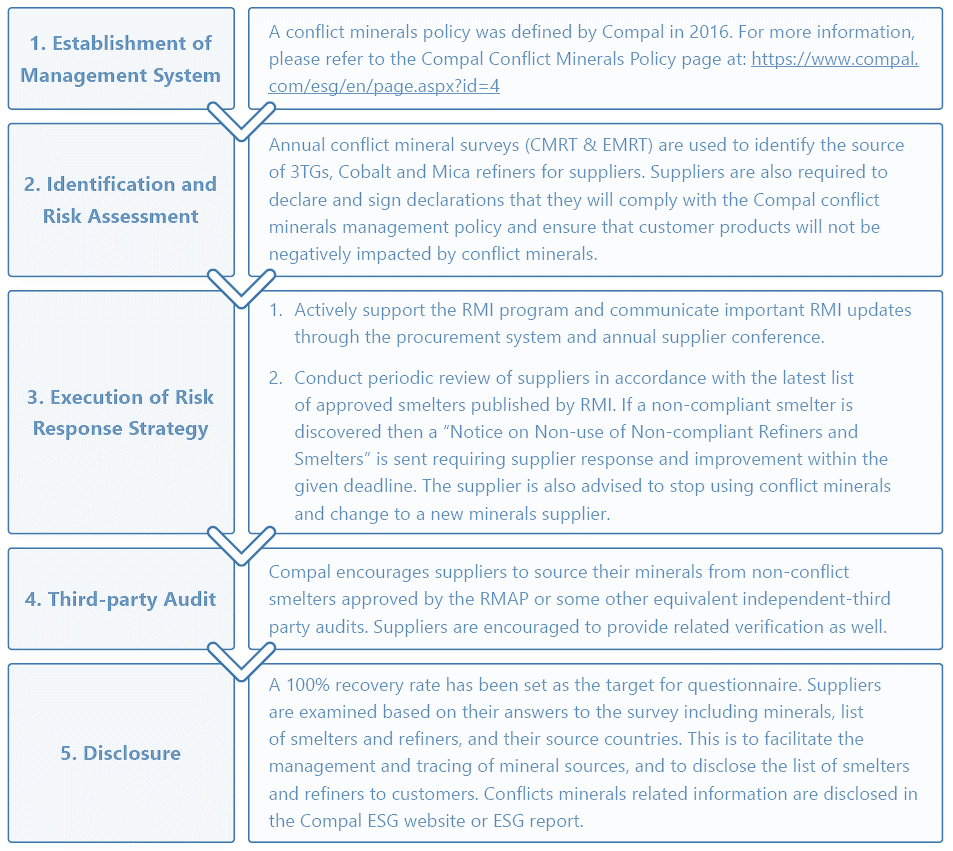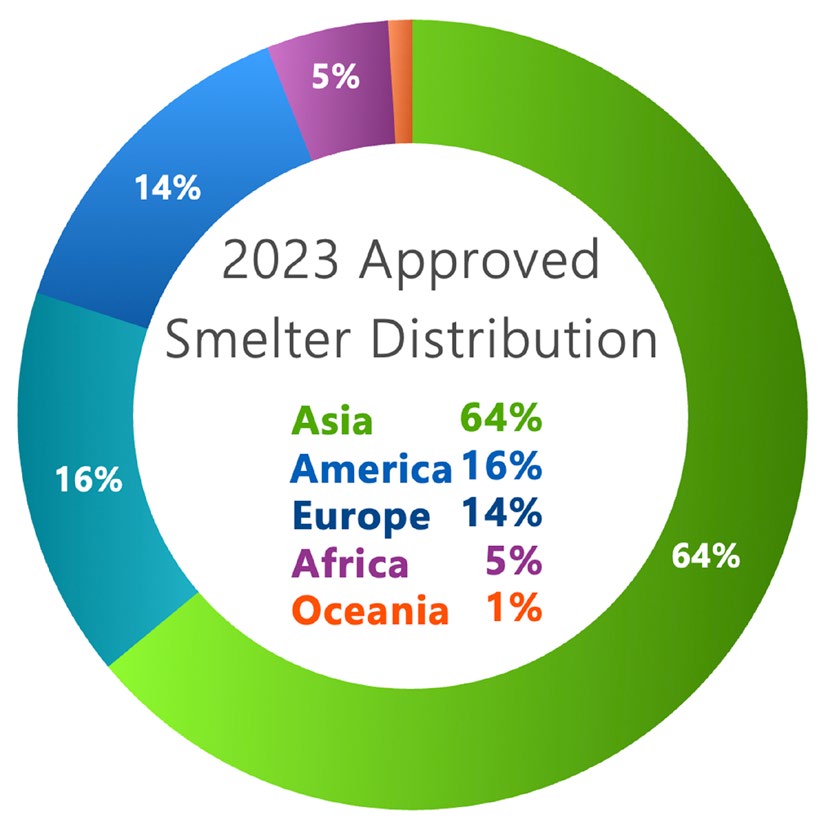Conflict Minerals Management
Conflict Minerals Management
The fulfilment of corporate social responsibility is expected of Compal as a member of RBA. In addition to setting an example on compliance with the RBA Code of Conduct, it is also necessary to ensure that purchased minerals are conflict minerals free. Tantalum, Tin, Tungsten, Gold, Cobalt and Mica are all minerals now commonly used in electronic products by the industry. Compal has defined a Conflict Minerals Free procurement policy that actively investigates the source of minerals, refiners and smelters. We also check with the relevant units and suppliers to determine the reason and necessity of using conflict minerals. If their use is not essential then the supplier is required to progressively reduce their purchases, purchase alternative minerals, and stop the use of conflict minerals. They are also advised to choose a new source of minerals. To raise supplier awareness on the importance of conflict minerals, Compal followed the due diligence framework defined in the “Due Diligence Guidance for Responsible Supply Chains of Minerals from Conflict-Affected and High-Risk Areas” published by the OECD in devising the “Supplier Conflict Minerals Management Procedure” for the conflict minerals investigation management process at Compal. A management policy was also issued for the investigation of supplier partners (incl. headquarters’ factory, agent, and distributor). Suppliers are also required to sign and commit to non-use of metals mined and sold from mining regions controlled by armed groups. We hope that through the institution of self-discipline within the supply chain, we will be able to exert a positive influence on the issue.
Compal's Conflict Minerals Investigation Management Process

- No sourcing of conflict minerals from conflict areas.
- Formulation of Conflict Minerals Policy with suppliers strongly urged not to use the Conflict Minerals either directly or indirectly in the raw materials they supply.
- Expect suppliers to fully use approved smelters or require existing smelters to verify that they will take necessary measures to stop using the conflict minerals if they are found to have conflict minerals in their products.
For more information, please refer to the Compal Conflict Minerals Policy: ![]()
CMRT & EMRT Conflict Minerals Questionnaire
In 2023,Compal conducted CMRT and EMRT conflict minerals investigations on 838 suppliers, achieving a 100% completion rate. Upon suppliers’ responses to the conflict minerals questionnaire, the contents including minerals, smelter names, and source countries are reviewed for minerals management and tracing. Following closure of the investigations, Compal continues to monitor the list of responsible smelters approved by the Responsible Minerals Initiative (RMI). Important RMB matters are announced through the Compal procurement system. Compal requires suppliers to comply with RMI standards, actively assess and manage their supply chains, and encourages sourcing from smelters verified by the Responsible Minerals Assurance Process (RMAP) or equivalent independent thirdparty audits. Suppliers are encouraged to provide relevant verification to ensure the use of conflict-free minerals in our products, thereby ensuring mineral safety within the supply chain.

Note: CMRT Questionnaire -The Conflict Minerals Reporting Template (abbreviated as CMRT) and Extended Minerals Reporting Template (abbreviated as EMRT) is list for corporations to collect and complete as a self-assessment document of whether or not they use conflict minerals. The contents record the 3TG, Cobalt and Mica refineries applied by the corporation’s suppliers. After receiving the document and comparing with the qualified conflictfree minerals refineries list announced by RMI, corporations can detect whether the supplier violates the regulations or not.

Updated on July 18, 2024
